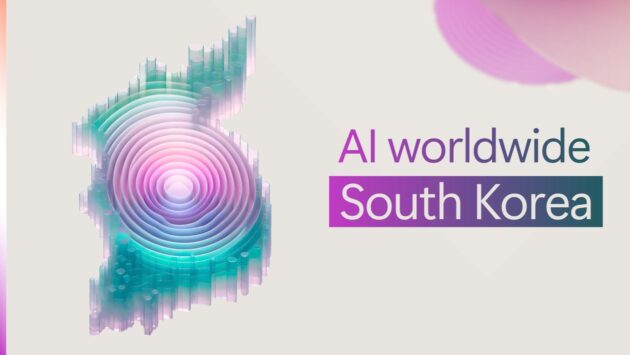
How South Korea is building an AI-powered future for everyone
At the Microsoft AI Tour in Seoul, Korean companies demonstrated how AI is moving beyond efficiency gains to become a true growth engine.

Health and human services focused nonprofit organizations are one of the broadest categories of nonprofits. From disease research, to providing in-home care and care in refugee camps, and promoting overall well-being for the communities they serve. Cloud technology, especially solutions that leverage AI, can help mission-driven organizations navigate the ever-increasing demand for their services while maximizing their impact. Health nonprofits are using Microsoft 365 Copilot to find operational efficiencies and create even greater impact.
These organizations are under extreme pressure. Populations in many parts of the world are aging, leading to increased demand for healthcare. People across the globe face a wide range of health challenges, from Alzheimer’s to Zika. At the same time, the number of workers available to fill care-related roles is not keeping pace.
Meanwhile, nonprofits and social impact organizations that tackle big health challenges and provide direct care work in a tricky fundraising landscape. They navigate the gap between very real needs, workforce shortages, and funding constraints by seeking opportunities to do more of their essential work with less.

Some health-focused organizations, including the British Heart Foundation in the United Kingdom and BaptistCare in Australia, are doing just that with Microsoft 365 Copilot. This AI-powered digital assistant, integrated into the Microsoft 365 technology stack, helps employees create, edit, summarize, and analyze information in Microsoft 365 apps, documents, and conversation. In summary, it empowers employees so they can spend more time on the mission.
How can social impact organizations use AI?
Explore 3 strategiesHealth-focused nonprofits must also uphold their commitments to security and privacy. Copilot operates within each organization’s instance, staying separate from public-facing models. Built-in security features of the technology, plus ongoing internal training and ethical guidelines, keep patient and organizational data safe.
“We care for people, and that includes caring for their information,” says Daniel Pettman, Chief Digital Information Officer at BaptistCare. “Copilot securely takes out manual, irritating, or unnecessary steps [of work] so we can help clients achieve the outcomes they want to achieve.”
BaptistCare supports more than 24,000 people through its aged care homes, retirement living villages, specialty senior community housing, in-home care services, and other programs that help vulnerable groups. Frontline workers care for older residents with dementia, while behind-the-scenes staff keep the organization running. Every minute saved can be reinvested in the actions that support aging Australians and others living in difficult circumstances.
BaptistCare adopted Microsoft 365 Copilot on the first day it was available. “The small margins that generative AI saves add up to a lot,” Pettman says. “By using really good technology, our employees can focus more on transforming the lives of people we work with.”
BaptistCare staff delegate repetitive or manual tasks to Copilot, and they get a head start on time-intensive projects through the AI assistant. It summarizes meetings, inboxes, and documents, such as lengthy governmental reports on aged care. Members of the technology team prompt Copilot to build custom apps through Microsoft Power Apps, which they then fine-tune, cutting development time in half. Additionally, staff direct Copilot to draft documents and communications such as emails, which is particularly helpful for people who speak English as a second language.
Copilot helps BaptistCare staff streamline everyday tasks and cuts through information overload, saving users two to eight hours a week. This enables more creative problem-solving, a critical benefit for addressing today’s evolving health needs.
Technology is helping to accelerate medical breakthroughs, including at the British Heart Foundation (BHF). As one of Europe’s largest investors in heart and circulatory disease research, BHF finances work that provides insights and discovers treatments. Many of the organization’s grant recipients use AI to fuel their research projects. And now BHF is using Microsoft 365 Copilot to help create greater efficiencies internally, too.
Smoother operations can lead to more room for big-picture thinking—just what health organizations need to innovate solutions to life-threatening conditions. “We’re noticing that Copilot reduces cognitive load and enables [users] to focus on the difficult challenges they’re here to solve,” says Thomas Sorensen, Technology Innovation Manager at the British Heart Foundation.
Central to many health-focused research organizations, BHF is constantly experimenting. The 300 BHF staff are using Microsoft 365 Copilot to stay up to date on communication and meeting action items, which particularly helps those who have meeting-heavy schedules. The coaching function within Copilot helps users improve their communication and writing skills. Staff also search for a needed document or piece of information by querying the AI assistant, which can hunt across platforms—and save up to 15 minutes per search.
Use our Copilot Success Kit, implementation framework, and how-to resources

Fifteen minutes may not seem like a lot of time. It adds up, though, especially when we consider the results of alleviating that pressure. “With Copilot, we’re helping our colleagues gain time back to come up with ideas that move the organization forward,” explains Peter Ugbashi, Technology Graduate at the British Heart Foundation. BHF staff participating in the pilot are using their time to collaborate and focus even more on advancing the organization’s vision of a world free from the fear of circulatory and heart diseases.
“We’re continuing this exploration to maximize our investment in Copilot and harness its productivity power,” explains Sorenson. “Microsoft 365 Copilot is helping us be more efficient so we can work harder and faster on our mission.”
Microsoft healthcare solutions
Read the Healthcare blogNurses, physician assistants, and countless other health workers provide the vital and often life-saving care that we all need at some point. Without these dedicated workers, healthcare systems simply do not work. Yet the World Health Organization projects a shortfall of 10 million health workers worldwide by 2030.1
BaptistCare is leveraging Copilot to address staffing difficulties. Pettman sees the AI assistant as a retention tool, encouraging team members to stay. The people who use Copilot appreciate its support in getting their important work done more efficiently, promoting better work-life balance.
In my 20-year IT career, I’ve never seen people as excited about technology as they are with generative AI and Copilot.”
Daniel Pettman, Chief Digital Information Officer at BaptistCare
In addition, cutting-edge technology like Copilot acts as a magnet for skilled workers looking for their next position. During interviews, hiring managers discuss the organization’s commitment to using the most modern technology like AI to empower employees, which sets BaptistCare apart and attracts qualified candidates.
Lastly, Copilot assists the Australian nonprofit in the operations of hiring. Managers prompt the technology to draft a business case for added headcount and a job description for the open role, then refine the content. These time-saving steps help BaptistCare create and fill important positions more quickly.
The idea of efficiency can feel abstract, but for health-focused organizations, gains translate to better quality of life and healthier outcomes. Pettman says, “Our vision is every individual living well, and we work to make sure our clients are getting more benefit from us. Technology empowers our staff to do that.”
Learn more about how Microsoft is supporting nonprofits, see how other organizations are using AI to drive impact, and get more information about how you can safely and securely deploy AI to support your business needs.
1Health workforce, World Health Organization.